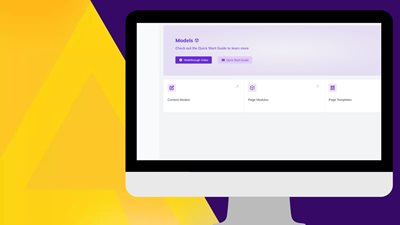How to choose an Agile Content Platform


Defining an Agile Content Platform
An agile content platform is a software solution that provides an environment for companies to work collaboratively, manage content, and distribute it to echo their brand voice across channels.
Agile content management has become popular for businesses looking to streamline their content creation and distribution processes. With an agile content platform, teams have a collaborative environment to create and manage content. With so many options available, choosing the right platform for your organization can be challenging. In this article, we'll explore how to choose an agile content platform that meets your needs and the right questions to ask yourself in determining what you truly need out of the platform.
When navigating different content platforms, you’ll likely face options ranging from Headless CMS, Composable DXP, Composable Content Platforms, and other jargon.
Ultimately, in 2023, there are various service providers with Headless CMS at their core, but the content platforms on the market have more robust composable capabilities. An agile content platform vs a content platform will have similar capabilities, but what sets them apart is their ability to support unique content needs. Most content platforms serve a composable technology stack for future-proof digital needs.
Ask yourself these questions when considering your options:
- What are my content management needs, and how can an agile content platform address them?
- How important is collaboration among team members, and what features do I need an agile content platform to have to facilitate collaboration?
- How important is content distribution, and what integrations does the content platform offer to publish content across different channels?
- How important is security and permissions, and what measures does the platform have in place to protect content from unauthorized access?
- How customizable is the content platform, and what customization options does it offer to tailor to my organization's unique needs?
- What level of customer support does the content platform offer, and what resources are available to help me resolve any issues or questions?
Before selecting a content platform that is agile enough to provide the solution your content needs, it's essential to identify your exact requirements. Consider your content goals, audience, team size, and workflows. You'll want to choose a platform that aligns with your organization's content strategy and can scale as your content needs evolve.
Look for Collaborative Features
Agile content management relies heavily on collaboration. You'll want to choose a platform that offers collaborative features such as real-time editing, commenting, user roles, and feedback capabilities. These features enable your team to work together efficiently, resulting in faster content creation and higher-quality output.
Consider Content Organization and Tagging
Organizing and tagging your content is critical in agile content management. You'll want to choose a platform that makes it easy to categorize and search for content based on tags, topics, or keywords. This way, you can quickly find and repurpose content across different channels.
Evaluate Content Distribution Capabilities
An agile content platform should offer easy integration with distribution channels such as social media, email, and CMS. The platform should also provide analytics to help you measure the performance of your content across these channels. Look for a platform that offers a centralized dashboard to view your content's performance metrics.
Assess Security and Permissions
Content security and permissions are critical, especially if you have a large team working on content creation. You'll want to choose a platform that offers role-based access control to control who has access to what content. The platform should also offer data encryption and other security measures to protect your content from unauthorized access.
Look for Customization Options
Agile content platforms should be customizable to meet your specific needs. Look for a platform that offers customization options.
Evaluate Customer Support
Customer support is essential when choosing an agile content platform. Look for a platform that offers responsive customer support and resources such as documentation, tutorials, and forums. A platform with a dedicated support team can help you resolve any issues quickly, ensuring that your team can focus on creating high-quality content. They’ll also have more agile solutions for your unique requirements.
Determine The Composable Capacity
You'll want to choose a platform that prioritizes composable integrations, which can easily integrate with other tools and technologies. This way, you can leverage your existing infrastructure, avoiding switching tools or duplicating work across different platforms. Composable integrations also enable you to create custom workflows and automation, further streamlining your content creation and distribution processes.
Choosing a content platform can be overwhelming, but considering the above factors can help you make an informed decision. Identify your content management needs, look for collaborative features, consider content organization and tagging, evaluate content distribution capabilities, assess security and permissions, look for customization options, and evaluate customer support.
Being Agile in an Enterprise Content Strategy
In an enterprise content strategy, being agile means being able to respond to market changes quickly. This involves having a content platform that can accommodate changes in content type, format, and distribution channels. An agile content strategy enables businesses to create and distribute relevant, timely, engaging content to their target audience.
To be agile in an enterprise content strategy, businesses must adopt a flexible approach to content creation, allowing for real-time collaboration between team members. They must also be able to track and measure the performance of their content, adjust their strategy accordingly, and optimize their content distribution channels. Additionally, businesses must be open to adopting new technologies to enhance their content creation and distribution capabilities.
Agility's Content Platform: Trusted for Unique Content Problems
Agility's content platform is trusted by enterprises with unique content creation and management needs. The platform's strength lies in its flexibility, customization options, integrations with other systems, and the ability to solve content problems that no other vendor can address.

About the Author
Harmonie is the Senior Marketing Manager at Agility CMS



